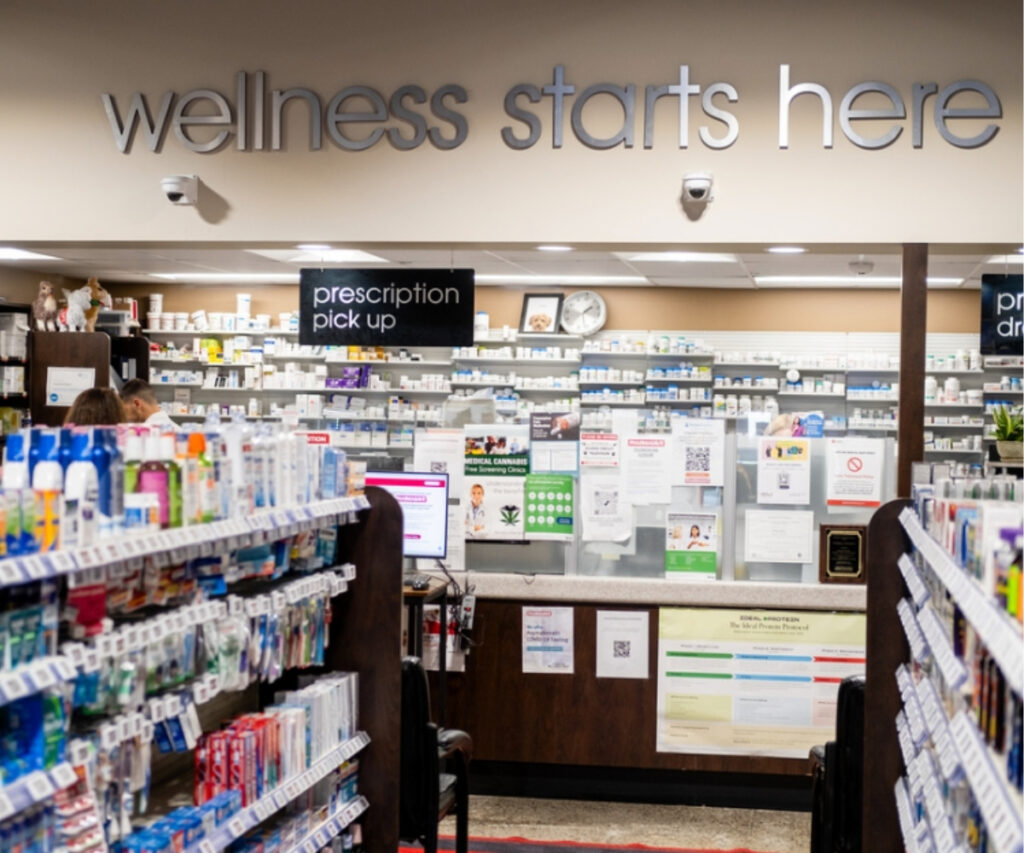Nous avons tous eu recours aux médicaments en vente libre (OTC) pour soulager un mal de tête ou apaiser un mal de dos après une longue journée, sans consulter un professionnel de santé. Si vous optez pour les analgésiques en vente libre les plus courants ou effectuez une recherche rapide sur la gestion de la douleur près de chez moi, vous trouverez des options comme l'ibuprofène ou le paracétamol. Cependant, un manque de recherche approfondie et le non-respect des précautions peuvent faire plus de mal que de bien. Ces médicaments populaires sont un choix privilégié pour des millions de personnes en raison de leur accessibilité et de leur praticité. Mais que se passe-t-il lorsqu’ils ne sont pas aussi efficaces qu’on l’espère ?
Fait surprenant, près de 40 % des adultes canadiens admettent dépasser les recommandations d’utilisation des médicaments en vente libre contre la douleur. Certains prennent leur prochaine dose plus tôt que prévu, tandis que d’autres doublent la quantité ou dépassent la limite quotidienne. Ces habitudes peuvent sembler anodines sur le moment, mais elles entraînent des risques graves pour la santé à long terme.
Cela nous rappelle que les médicaments en vente libre sont essentiels pour gérer la douleur, mais qu’ils ne sont pas une solution universelle. Les utiliser de manière sécuritaire est aussi important que de trouver un soulagement efficace.
Si vous souhaitez découvrir des conseils pratiques pour utiliser correctement les médicaments en vente libre, vous êtes au bon endroit. Savoir comment gérer la douleur en toute sécurité et de manière efficace avec ces médicaments peut grandement améliorer votre santé et votre bien-être.
Qu'est-ce que les médicaments en vente libre (OTC)?
Les médicaments en vente libre (OTC) sont des médicaments qui ne nécessitent pas d’ordonnance. Contrairement aux médicaments sur ordonnance, qui nécessitent l’approbation d’un médecin, les médicaments OTC peuvent être achetés directement en pharmacie. Cela signifie que vous pouvez vous procurer ces médicaments pour l’automédication sans consulter un professionnel de santé. Voici quelques caractéristiques essentielles de ces solutions médicamenteuses:
- Accessibilité:Les Canadiens peuvent acheter facilement des médicaments OTC chez les détaillants, sans avoir à consulter un médecin.
- Réglementation Santé Canada réglemente strictement les médicaments en vente libre, établissant des monographies qui définissent les ingrédients acceptables, les dosages et les utilisations. Même sans ordonnance, ces médicaments doivent répondre à des normes rigoureuses en matière de sécurité et d’efficacité.
- Étiquetage:Chaque médicament OTC vendu au Canada comprend une section détaillée « Infos Médicament ». Cette section énumère les ingrédients actifs, les dosages recommandés, les risques potentiels et d'autres informations essentielles pour garantir une utilisation sûre.
Bien que les médicaments OTC soient généralement sûrs lorsqu'ils sont utilisés conformément aux indications, une mauvaise utilisation peut présenter des risques. Par exemple, certains Canadiens détournent l’usage des sirops contre la toux contenant du dextrométhorphane en raison de ses effets hallucinogènes. Cela souligne l’importance d’une utilisation responsable et d’une bonne compréhension des cas où les médicaments OTC sont appropriés.
- Soulagement de la douleur: Les anti-inflammatoires non stéroïdiens (AINS) sont populaires pour gérer la douleur et réduire la fièvre.
- Symptômes du rhume et des allergies: Les médicaments contenant des antihistaminiques ou des décongestionnants soulagent les symptômes liés aux allergies et aux rhumes.
- Troubles digestifs: Des solutions comme le lopéramide pour la diarrhée ou les antiacides pour l’indigestion font également partie des options OTC.
C'est pourquoi vous pourriez envisager de prendre des médicaments composés, adaptés à vos besoins uniques. Mais avant cela, il est essentiel de comprendre en quoi les pharmacies de préparation magistrale diffèrent des pharmacies traditionnelles qui fournissent des médicaments en vente libre.
Mais ça, nous l'avons abordé dans un autre article. Maintenant, voyons les risques liés à l'utilisation des médicaments OTC pour le soulagement de la douleur.
6 Risques et Défis de l’Utilisation des Médicaments en Vente Libre pour le Soulagement de la Douleur
Si vous recherchez des solutions de gestion de la douleur en ligne, souvenez-vous que les premiers résultats peuvent ne pas être les plus fiables. Ils ne sont pas toujours des sources crédibles ! Il est donc essentiel d’être prudent avec les médicaments en vente libre (OTC).
Voici quelques raisons pour lesquelles les médicaments OTC peuvent être dangereux:
-
Mauvaise Utilisation:
Leur accessibilité peut entraîner un abus de substances. Certains médicaments destinés à la perte de poids ou aux coups de boost énergétiques peuvent avoir des effets secondaires graves sur le cœur. Ils peuvent aussi provoquer de l’anxiété, de la dépression et d’autres troubles psychologiques.
-
Puissance des Médicaments:
Beaucoup de médicaments OTC sont puissants et peuvent causer des dommages s’ils sont mal pris. Par exemple, l’ibuprofène et l’acétaminophène semblent sans danger. Pourtant, une surdose peut sérieusement affecter le foie, les reins et la paroi de l’estomac. Une petite erreur peut entraîner des conséquences importantes, surtout si vous ignorez les risques.
-
Absence de Suivi Médical:
Lorsque les gens s’auto-diagnostiquent et s’auto-médicamentent, ils le font souvent sans consulter de professionnels de la santé. Ce manque de suivi peut entraîner un mauvais choix de médicaments ou un dosage inapproprié, aggravant ainsi leur état de santé au lieu de l’améliorer. Par exemple, traiter des migraines persistantes avec un antidouleur en vente libre peut masquer un problème sous-jacent plus grave qui nécessiterait une prise en charge médicale appropriée.
-
Dépendance:
Certains médicaments en vente libre peuvent entraîner une dépendance psychologique. Des médicaments comme les sirops contre la toux ou les somnifères peuvent provoquer des sensations de bien-être ou de somnolence. Cela peut amener certaines personnes à en abuser, augmentant ainsi le risque de dépendance et entraînant une utilisation à long terme de substances initialement prévues pour un usage occasionnel.
-
Side Effects:
Les médicaments OTC provoquent des effets secondaires courants, dont voici quelques exemples:
- Sirops contre la toux: Éruptions cutanées, étourdissements, accélération du rythme cardiaque
- Ibuprofène: Confusion, somnolence, vomissements, insuffisance rénale
- Antihistaminiques: Nausées, tremblements, hallucinations, somnolence
- Analgésiques: Diarrhée, troubles de l’humeur, problèmes digestifs, risques de coma
-
Vulnérabilité:
Certaines populations sont plus vulnérables aux effets secondaires des médicaments en vente libre. Les personnes âgées peuvent présenter des risques accrus en raison de problèmes de santé préexistants ou des interactions avec d'autres médicaments. Les femmes enceintes doivent également faire preuve de prudence, car certains médicaments en vente libre peuvent affecter le développement du bébé.
Vous cherchez les meilleures solutions pour soulager la douleur ou gérer la douleur près de chez vous ? Continuez à lire.
Gestion de la douleur près de chez moi: 7 conseils pour utiliser les médicaments en vente libre en toute sécurité
Les médicaments en vente libre (OTC) sont pratiques, mais leur mauvaise utilisation peut entraîner de graves risques pour la santé. Si vous recherchez des solutions de gestion de la douleur près de chez vous, il est essentiel de les utiliser correctement. Suivez ces conseils pour vous protéger et tirer le meilleur parti des solutions OTC.
1. Lisez les étiquettes
Les étiquettes ne sont pas juste décoratives, elles constituent votre première ligne de défense contre une mauvaise utilisation. Lorsque vous lisez l’étiquette, portez une attention particulière aux éléments suivants:
- Ingrédients actifs: Ils déterminent l’objectif du médicament. Par exemple, l’acétaminophène réduit la douleur et la fièvre, tandis que la diphénhydramine est un antihistaminique. Connaître l’ingrédient actif permet d’éviter de prendre plusieurs médicaments ayant le même effet.
- Instructions de dosage: Elles indiquent la quantité et la fréquence de prise du médicament. Une mauvaise lecture peut entraîner un surdosage accidentel.
- Avertissements et contre-indications: Ils précisent qui ne devrait pas prendre le médicament, ainsi que les effets secondaires possibles et les interactions dangereuses avec d'autres substances ou conditions médicales.
Lire attentivement les étiquettes aide à éviter une mauvaise utilisation des médicaments en vente libre, surtout lorsque vous cherchez des options de gestion de la douleur près de chez vous.
2. Choisissez des traitements spécifiques à votre douleur
Les médicaments en vente libre sont plus efficaces lorsqu’ils ciblent des symptômes précis. Par exemple:
- Les antitussifs traitent la toux sèche, tandis que les expectorants aident à dégager le mucus.
- Les analgésiques comme l'ibuprofène réduisent l'inflammation, contrairement à l'acétaminophène qui agit différemment. like ibuprofen target inflammation, while acetaminophen does not.
Évitez de combiner plusieurs médicaments OTC à moins que ce soit absolument nécessaire. De nombreux remèdes pour plusieurs symptômes contiennent des ingrédients inutiles, augmentant le risque d'exposition excessive.
3. Faites attention aux interactions
Il peut être dangereux de mélanger plusieurs médicaments, qu’ils soient prescrits ou en vente libre. Par exemple:
- Surcharge d’acétaminophène: Prendre un médicament contre le rhume contenant de l’acétaminophène et un antidouleur contenant le même ingrédient peut être toxique pour le foie.
- Anticoagulants et AINS: Si vous prenez un anticoagulant, évitez les anti-inflammatoires non stéroïdiens (AINS) comme l’ibuprofène, car ils augmentent le risque de saignement.
4. Suivez les instructions pour le soulagement de la douleur
Prendre plus que la dose recommandée n’accélère pas la guérison, mais peut aggraver votre état. Par exemple:
- Une utilisation excessive de sprays nasaux peut empirer la congestion.
- Trop d'ibuprofène peut causer des ulcères à l'estomac ou endommager les reins.
Respectez toujours les instructions indiquées sur l’étiquette ou données par votre professionnel de santé. Si vos symptômes persistent malgré l’usage recommandé, consultez un expert au lieu d’ajuster la dose par vous-même. Lorsque vous recherchez des solutions pour la gestion de la douleur près de chez vous, les pharmacies locales peuvent offrir des conseils précieux.
5. Tenez une liste de vos médicaments
Garder une trace de tous vos médicaments vous aide à éviter les interactions involontaires. Votre liste doit inclure:
- Tous les médicaments sur ordonnance.
- Chaque médicament en vente libre, même ceux que vous utilisez occasionnellement.
- Les suppléments à base de plantes ou vitamines.
Gardez cette liste avec vous, surtout lors de vos visites chez un médecin, un pharmacien ou tout autre professionnel de santé.
6. Assurez un bon stockage des médicaments
Un mauvais stockage peut réduire l'efficacité des médicaments. Suivez ces conseils:
- Température: Conservez la plupart des médicaments OTC dans un endroit frais et sec, loin des salles de bain où l’humidité est élevée.
- Emballage d’origine: Garder les médicaments dans leurs contenants d'origine permet de toujours avoir accès aux instructions et avertissements.
- Sécurité des enfants: Rangez les médicaments hors de leur portée, de préférence dans des armoires verrouillées, pour éviter les ingestions accidentelles.
7. Consultez des professionnels de santé
En cas de doute, parlez-en à un pharmacien ou un médecin. Ils peuvent:
- Vous aider à comprendre comment utiliser un médicament en toute sécurité.
- Vous avertir des effets secondaires possibles en fonction de votre état de santé et des médicaments que vous prenez déjà.
- Vous recommander des alternatives comme les médicaments composés si les options en vente libre ne conviennent pas.
Si vous ne savez pas où chercher, tapez simplement « gestion de la douleur près de chez moi » pour trouver des pharmacies ou cliniques locales qui offrent des conseils experts et des solutions personnalisées. Les pharmacies spécialisées en préparation magistrale peuvent proposer des médicaments sur mesure pour répondre à vos besoins spécifiques.
Conclusion : Prenez les bonnes décisions pour soulager votre douleur
Dans nos pharmacies de la région de Cornwall, nous comprenons que chaque personne a des besoins différents en matière de gestion de la douleur et de soins de santé. C'est pourquoi nous offrons des soins personnalisés avec la préparation magistrale.
Grâce à cette approche, nous pouvons adapter les médicaments à vos besoins spécifiques. Que vous ayez besoin d’une crème antidouleur sur mesure, d’une solution liquide adaptée aux enfants ou d’un mélange personnalisé de vitamines, notre équipe est là pour vous aider.
Si vous recherchez des solutions pour le soulagement de la douleur ou la gestion de la douleur près de chez vous, visitez la pharmacie Long Sault ou la pharmacie Pharmasave Ingleside. Vous pouvez aussi découvrir comment les médicaments composés peuvent offrir un soulagement ciblé et un soutien adapté.
Notre équipe dévouée est prête à vous accompagner sur le chemin de la santé. Nous proposons des solutions personnalisées adaptées à votre mode de vie. Passez nous voir ou appelez-nous pour en savoir plus dès aujourd’hui!






